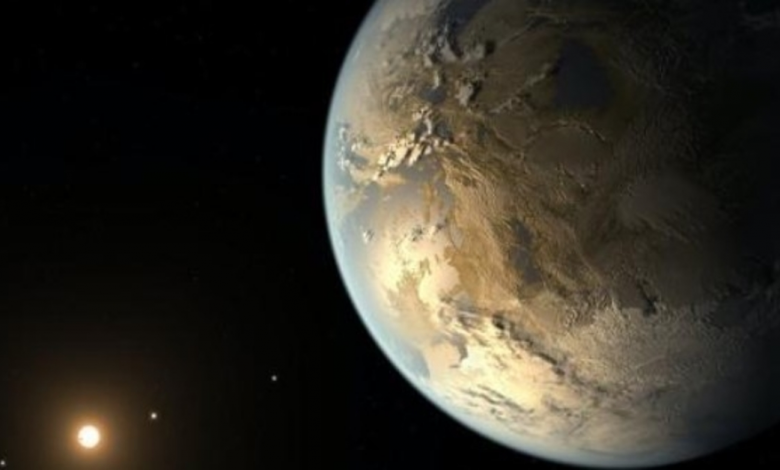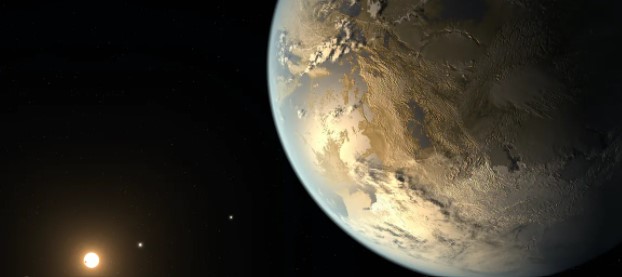Habitable exoplanets are bad news for humanity

Last week, researchers announced the discovery of Kepler-186f, a world 492 light years away in the Cygnus constellation. Kepler-186f is special since it marks the initial earth virtually precisely the same dimension as Earth orbiting in the “habitable zone”– the range from a celebrity in which we may anticipate liquid water, as well as possibly life.
What did not make the news, nonetheless, is that this exploration additionally somewhat boosts just how much credence we offer to the possibility of near-term human extinction. This is as a result of a concept referred to as the Great Filter.
The Great Filter is a debate that attempts to settle the Fermi Mystery: why have we not discovered aliens, despite the presence of numerous billions of solar systems in our galactic neighbourhood in which life might evolve? As the namesake physicist Enrico Fermi kept in mind, it appears instead extraordinary that not a solitary extraterrestrial signal or design task has been identified (UFO conspiracy philosophers regardless of).

This evident lack of growing extraterrestrial civilisations recommends that at the very least one of the steps from modest earth to interstellar civilisation is exceedingly not likely. The lack could be created due to the fact that either smart life is exceptionally unusual or smart life tends to go extinct. This traffic jam for the appearance of unusual civilisations from any kind of one of the many billions of worlds is described as the Great Filter.
Are we alone?
Just what is creating this bottleneck has been the topic of debate for greater than 50 years. Descriptions could include a scarceness of Earth-like worlds or self-replicating particles. Various other opportunities could be an unlikely jump from straightforward prokaryotic life (cells without specialised parts) to more intricate eukaryotic life– besides, this shift took well over a billion years on Earth.
Proponents of this “Rare Earth” hypothesis also say that the advancement of intricate life needs an exceedingly a great deal of excellent conditions. Along with Earth being in the habitable zone of the sunlight, our celebrity has to be much sufficient far from the galactic centre to avoid damaging radiation, our gas giants need to be substantial enough to move asteroids from Planet’s trajectory, and also our unusually big moon stabilises the axial tilt that offers us various periods.
These are just a couple of prerequisites for complex life. The development of symbolic language, devices as well as intelligence can need other such “perfect problems” as well.
Or is the filter ahead of us?
While introduction of smart life could be rare, the silence can also be the result of intelligent life emerging regularly yet ultimately failing to endure for long. Might every completely innovative civilisation come across a self-destructive modern technology or unsustainable trajectory? We know that a Wonderful Filter prevents the emergence of thriving interstellar civilisations, yet we do not know whether it depends on humankind’s past or awaits us in the future.
For 200,000 years humanity has actually made it through supervolcanoes, asteroid impacts, and also naturally taking place pandemics. Yet our track record of survival is limited to just a couple of decades in the existence of nuclear weaponry. And we have no record whatsoever of making it through much of the drastically unique innovations that are likely to arrive this century.
Esteemed scientists such as Astronomer Royal Martin Rees at the Cambridge Centre for the Research Study of Existential Risk indicate developments in biotechnology as being possibly devastating. Others such as Stephen Hawking, Max Tegmark and also Stuart Russell, likewise with the Cambridge Centre, have expressed serious concern regarding the exotic yet understudied opportunity of equipment superintelligence.

Allow’s wish Kepler-186f is barren
When the Fermi Paradox was initially recommended, it was assumed that earths themselves were uncommon. Ever since, however, the tools of astronomy have exposed the presence of numerous exoplanets. That just appears to be the tip of the iceberg.
Yet each brand-new discovery of an Earth-like planet in the habitable zone, such as Kepler-186f, makes it less possible that there are simply no earths aside from Earth that may sustain life. The Great Filter is hence more likely to be lurking in the course between habitable earth and also thriving civilisation.
If Kepler-186f is including smart life, then that would certainly be truly problem for mankind. For that would certainly push back the Fantastic Filter’s setting further right into the technical stages of a civilisation’s growth. We could then expect that catastrophe waits for both our extraterrestrial companions and ourselves.

When it comes to Kepler-186f, we still have numerous factors to think smart life may not emerge. The environment could be too thin to avoid cold, or the world could be tidally locked, causing a relatively static atmosphere. Discovery of these hostile conditions must be create for party. As thinker Nick Bostrom as soon as stated:
The silence of the evening skies is golden … in the look for extraterrestrial life, no news is excellent information. It guarantees a potentially terrific future for humanity.
